2023 IARPP Conference in Valencia
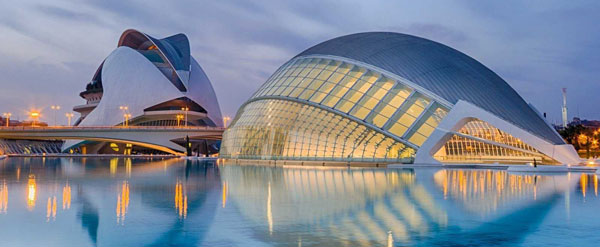
Meeting the Other:
Relational Psychoanalysis in Dialogue with Multiple Perspectives
June 15 – 18, 2023
Observations and Reflections on the Conference from a range of attendees
Scroll down, or click on name to go to specific piece:
From the Organizers: Raimundo Guerra, Silvia Jiménez & Sandra Toribio
Matt Aibel
Alice Bar Nes
Lucia Martinez Dominguez
Victor Donas
Tatiana Kobzeva
Sean Meggeson
Indira Moodley
Joanna Oleson
Spyros Orfanos
Alexandra Plaza
Photo Gallery IARPP 2023 Valencia
Raimundo Guerra, Silvia Jiménez & Sandra Toribio, Spain
Conference Organizers
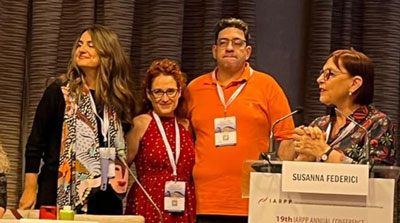
Sandra Toribio, Silvia Jiménez, Raimundo Guerra, Susi Federici
The 19th IARPP Annual Conference was held in Valencia, Spain on June 15 – 18, 2023. It exceeded attendance expectations with a participation of 556 attendees representing 33 countries. We had 382 attendees in-person and 176 online in the 5 plenary sessions.
Such encounters are necessary, as relational psychoanalysis remains an evolving field. Forty years ago Stephen Mitchell introduced us to his groundbreaking work. Drawing from British object-relational theory, interpersonal psychoanalysis, and feminist theory, he offered us new ways of thinking and functioning clinically. In addition, relational theory drew on significant contributions from anthropology, sociology, philosophy, political science, child research, attachment studies, gender studies, and neuroscience, among others. Relational psychoanalysis continues to develop in exciting ways.
We are very pleased with how the event went and the atmosphere that was created, which was, as it could not be otherwise, relational. There was personal exchange as well as exchange of knowledge. It was many attendees’ first IARPP International Conference, and they discovered a wonderful atmosphere that we hope has convinced them to return in the future.
The Conference explored how our clinical encounters are not only enriched but also intricately interwoven with implicit and explicit influences from a number of different areas of expertise. We believe it is essential to maintain an ongoing dialogue with different disciplines that also seek to explore human experience. Our clinical endeavors are increasingly fraught due to current global challenges, where pandemic, war and climate change dramatically threaten our existential and interpersonal lives. Dialogue and the search for mutual recognition are more urgent than ever as our world now feels more polarized in unprecedented ways. Sustaining complexity, disrupting reductionism, enhancing our emotional awareness and connection are our clinical tasks in order to find the way forward together. Exchanges with different ways of exploring the human experience are indispensable in these efforts.
We would like to highlight the support of Susanna Federici, Hazel Ipp and Gianni Nebbiosi (International Conference Committee) in the realization of this Conference, as well as to thank all the Local Committee members, Marta Ansón, Ricardo Belanguer, Ignacio Blasco, Mario Castaño, Yasmina Giner, Cristina Gresa, Luján López, Lucía Martínez, Raúl Naranjo, Rodolfo Pérez and Laura Tormo, for their efforts, work, dedication and attitude in the organization of the Conference. Special thanks also to our translator María Hernández for all her work translating English-to-Spanish and Spanish-to-English, which made it easier for attendees to understand the papers. This latter success also involved the extraordinary efforts of our Executive Office, including Elisa Zazzera, Valerie Ghent, Lucia Lezama and others, all coordinating with the CE-GO to simultaneously broadcast our large in-person plenary sessions around the world.
The numerous faculty of the program were deeply appreciated. We had two pre-conference workshops, 48 paper/panel sessions, five plenaries, multiple breakout discussion groups, and a two early-morning groups.
Holding the Conference at the Hotel Sercotel Sorolla Palace was an absolute success. The facilities were perfectly suited to the needs of the Conference. The hotel staff, as well as the hostesses and the events company “El Corte Inglés,” especially its director, José Manuel, were at our disposal to meet our needs.
We would also like to mention the Gala Dinner at the Hotel Las Arenas, on Valencia’s Malvarrosa Beach, a spectacular place where we had a great time both at dinner and at the dance that followed. The evening included one of the most important and emotional moments of the Conference, the official announcement of Dr. Sandra Toribio Caballero as the new President-Elect of IARPP.
Finally, we thank all the attendees for their presence, their participation, their attitude and all the signs of affection we have received.
We look forward to seeing you all at the next conference at Yucatán.
Hugs!!!!
Raimundo Guerra, Silvia Jiménez & Sandra Toribio Caballero
Conference Co-Chairs
Matt Aibel, USA
June’s meeting in Valencia, for IARPP’s nineteenth Annual Conference, hosted over 500 attendees in-person and online. While we all participated in the same conference, it can be said as well that we each constructed our own individual conference, depending upon which panels we selected, which discussion group we attended, which sessions we may have skipped, whether we attended in-person or online, and other factors besides. I’m a compulsive attendee (five plenaries, five panels); some elected to spend a portion of their conference days enjoying the aquarium or other Valencian attractions, relaxing by the Sercotel pool or resting in their rooms, or taking extended lunches in town with friends. Some made last-minute edits to their imminent presentations; a few unlucky souls went shopping to replace clothes that had disappeared en route, their luggage eventually rematerializing after a few days’ sojourn in Paris.
Befuddling long waits by the elevator doors figured prominently in some attendees’ experience. Many others besides me got lost in the labyrinthian hallways and stairwells which often did not lead to where one was certain they ought to have. ¿A dónde voy? Where am I going? My effort to reach the front desk at one point led me to a dank sub-basement encounter with the maintenance staff, a Stygian/Ogdenian waking dream awaiting elaboration. Yet the wall of windows running alongside the reception area graciously enveloped us in sunny cheer all weekend, complemented nicely by sleek, warm wood paneling, a steady supply of repasts, and a wonderfully helpful conference staff.
Following Tony Bass’ pre-conference workshop on cultivating sensitivity to dialogues of unconsciouses and the presence of the uncanny in our work, my conference proper began with my and Ilene Philipson’s panel on the songs of Stephen Sondheim, at which Sandra Buechler, whose presence became something of a touchstone for me throughout the weekend, commented on two linked songs from Sondheim’s musical Sunday in the Park with George. “We do not belong together,” the principal female character Dot sings in defiance and sorrow near the end of Act One as she walks out on her lover, Georges Seurat; the lyric returns in the Act Two climax as the lovers reunite and sing the same melody in an altered form: “We’ve always belonged together.”
Belonging, the longing to belong, and unbelonging, per Eyal Rozmarin’s plenary talk, proved to be significant conference themes as we collectively explored myriad ways of Meeting the Other. As many conference discussions thoroughly documented, those denied access to privileged groups typically experience stunting, traumatizing, violent and sometimes fatal consequences. Those privileged with in-group status – not atypically, cis straight white European men – strive to maintain their positions of power, projecting weakness and badness into the others they meet (or avoid having to meet). They also interpellate the out-group “losers” into forms of self-negation, such that victims often collude in their denigration.
Not all inhabitants of dominant groups, however, are comfortable residing within their gilded cages. Some members “ambivalate,” per philosopher of science Menachem Fisch’s neologism, as discussed by Aron (2017) and cited by a plenary discussant. Some members of a group become so discomfited by the group pressure to conform to its hegemonic ethos that they choose, as Rozmarin suggested, to unbelong.
On a personal level, this notion of unbelonging helped me at one juncture to cope with the social anxieties accruing in my mind, aroused by my transferences to the conference’s dynamics. Contemplating Eyal’s concept, I was able to decenter from the pressures I was feeling and regroup, as it were, allowing myself to just be myself – however fluid or even frail one’s self-identity may be, as Eyal suggested. And, once in a more relaxed and centered self-state, I found that, perhaps paradoxically, I now felt free to rejoin the group – specifically, a stirring post-plenary discussion group – more fully and enthusiastically. While Eyal’s concept proved to be a useful intervention for me personally, its primary relevance to broader sociopolitical dynamics ought not go missing. I understand my facilitative Zen-like attitude of psychological unbelonging to be mediated by a privilege to choose my status, a freedom which those in marginalized and oppressed strata are typically less empowered to afford.
At another point in the conference, ChatGPT made a surprising appearance, its first at an IARPP conference, offering, through a comment from the floor, an exegesis on the dizzying rate of the world’s technological development. Whether in earnest or as meta-commentary, this AI interpellation (that word again!) was an eerie note from the future – which is actually, of course, the present.
Fast-forward to the festive Saturday night gala, held in a glorious bi-level setting in view of the Mediterranean, where our next president, Spain’s Sandra Toribio Caballero, was introduced to boisterous applause. Soon enough, many spirited clinicians enacted various relational configurations on the upstairs dance floor, boogeying and cavorting til nearly 1:00 am. Not everyone is comfortable expressing themselves through dance (perhaps even less so in front of a supervisee or patient?), but for once I found myself participating, in a state of unbridled, wholehearted belonging. For sheer exuberance, few of us can compete with the ever-vivacious Greek contingent, but I have to say that Australia’s Peter McKay came awfully close.
By the way, maybe it was the vino’s influence, but I never before realized how much Aretha Franklin’s “Think” invokes a Kleinian perspective:
I ain’t no psychiatrist, I ain’t no doctor with degrees
But it don’t take too much high IQs to see what you’re doing to me
You better think (Think!)
Think about what you’re trying to do to me.
I began the conference behind a panelist table, analyzing the depressive position in a Stephen Sondheim song; I ended it on a dance floor, pondering the exuberantly defiant words of Aretha Franklin. Go know.
I close by expressing my gratitude to Conference Chairs Raimundo Guerra, Silvia Jiménez & Sandra Toribio and their large team, and to all who presented, responded and attended, for a memorable and invigorating experience.
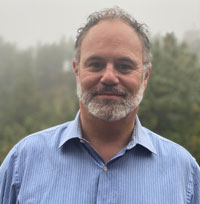
Matt Aibel, LCSW
Long Island & New York, NY, USA
Email Matt Aibel
Alice Bar Nes, Israel
The 2023 IARPP conference, “Meeting the Other: Relational Psychoanalysis in Dialogue with Multiple Perspectives,” created the right environment – at least for me – for meeting many kinds of ‘others’: people and thoughts from different cultures, new and “other” friends from my own culture within the Israeli group, and different “others” inside myself.
Beautiful, sunny and welcoming Valencia was the perfect background to combine new thinking and new emotional experiences. The first conference activity I attended was Tony Bass’ preconference workshop about the Uncanny. There is probably no better introduction to the conference theme than to meet with both the ultimate other within us and the magical otherness of the meeting of minds. These are our daily fair as therapists, Bass says, yet they never cease to catch us by surprise, enchant our imagination, sometimes deeply shock us, and hopefully serve to transform and help us grow. The evocative discussion in the group triggered for me some thoughts about familiar/uncanny parts of myself, seen now in a somewhat different light. I met a group participant from Saudi Arabia, now residing in the States, during a break, and he asked me how I felt when I heard where he was from. I answered that, though at first taken aback, once he presented a case, he became just another colleague struggling to understand his patient, and I got caught up in the interesting clinical discussion. The chat was pleasant, and I felt deeply grateful for this opportunity to meet a person from a non-friendly country and experience our common humanity and common values as therapists, an opportunity and a privilege which is hard to imagine us enjoying in any other context.
The next surprising, unsettling meeting with different parts of myself and my society was in the plenary panel containing Eyal Rozmarin’s provocative talk about – to my understanding – our wish to connect and belong and its discontents. For Rozmarin, the latter includes his deep distrust, up to the point of feeling listened to and intruded upon by the authorities of his native Israel. He talked of “Tal,” an imaginary female soldier listening in on his phone sessions with his analyst. Something quite powerful happened within me while listening to him. One part of me was enraged, offended. I felt misrepresented, a victim of an unbalanced, unfair picture. Another part was (perhaps defensively) scornful. I felt like asking him who would bother listening to you? Do you really believe yourself a person of interest to the secret services? Yet another part was deeply saddened. Though one-sided, Rozmarin was also right. There was no ignoring the tragic entanglement between our fates and those of the Palestinian people. Both are deeply wronged by the other. Both are right in their own way. The tragedy of Rozmarin’s wishing for/rejecting Israeli belonging lay not in his being listened too, but quite the opposite: in voices like his not being listened to enough. An otherness that could have been embraced, that might have enjoyed belonging – perhaps with a different historic outcome than our present tragic cycle of violence, arising from the feeling of ultimate otherness. This is an almost monolithic otherness, without the Heimlich/Unheimlich dialectic, without the ability to feel both at home and as intruders, without seeing some of ourselves in the other, this otherness turned into animosity within and without.
Yet another part of me admired the virtuosity of Rozmarin’s performance, his ability to stir all those different feelings, different parts of myself. I was overwhelmed. The following discussion group provided a container for this overwhelm and was instrumental in allowing for a milder and salutary kind of growth. Here we discussed the question of our place as analysts in politics and culture, in bringing about desired social change. The discussion was thoughtful and deep, using analytic ideas and trying to hold both our ideals and the hope inspired by the cultural influence of psychoanalysis and the depressive position, acknowledging the limitation of our power. Leaving the room, I felt a sober kind of hope but also a delight at the possibility to think and exchange ideas with interesting, intelligent people. A visit to the old city of Valencia with colleagues, who during the conference became friends, and drinking the “aqua de Valencia” in a picturesque pub, closed the eventful day.
I would like to close this account of my personal experience of the conference with a panel speaker whose talk felt important to me in the charged, absorbing preoccupation with world politics. In “Violence of Gender and Politics: Reflection on Our Time,” Noga Ariel Galor shared the story of a failed therapeutic dyad of a Jewish Israeli therapist and a Palestinian Israeli patient. According to Galor’s insightful analysis, this therapy failed (the patient left) because the well-meaning therapist, in her zeal to be empathic to the wronged other, and in her inherent guilt, concentrated on being “politically sensitive” rather than on thinking analytically. She neglected the analysis of deep envy and could make little use of the twinship transference that transpired between them because she was more occupied with their glaring difference. She saw her patient as a representative of a wronged people rather than as a young woman with a peculiar internal world of her own, to which psychoanalysis has taught us to attend. Galor concluded (and I heartily agree) that we should hold the necessary tension between the inner and outer worlds, and not choose one pole while neglecting the other.
This brings me back to Rozmarin’s “Tal” who, in my view, is an imaginary persecutor but also, as I later understood, an imaginary friend, one who makes you feel not just intruded upon but also connected and attended to. As someone in the audience noted, “Tal” united the hearers in warmhearted laughter whenever she was mentioned. Perhaps, if we take Galor’s advice of tolerating and thinking analytically within the ever-existing tension between inner and outer worlds, “Tal” can gain her rightful place and become a transitional object, a playful creation, rather than one taking up her listening devices or even her guns.
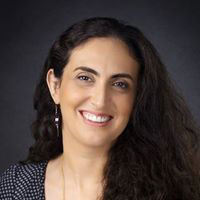
Alice Bar Nes
Ramat Gan, Israel
Email Alice Bar Nes
Lucía Martínez Domínguez, Spain
It has taken five years to be able to again attend the largest professional event I have gone to. I usually await this relational encounter with enthusiasm and desire. It makes me feel part of a community and gives me the opportunity to observe and get to know professional colleagues who are so different from me.
In these five years, our planet has continued to suffer adversities: disease, devastating tragedies due to climate change, the rise of far-right political extremism and the deprivation of our freedom of movement to remedy the consequences of our own destruction. We live in a time when all generations living together have a responsibility to alleviate and remedy the suffering caused by the consequences of the way we live and treat our world. Much has been said about this, and we, relational psychoanalysts, know a lot about it.
This meeting fulfills a multitude of functions, from sharing knowledge, reuniting with people from whom we are separated by a huge distance, meeting new people and learning from the new things they can bring to us.
I need to highlight the joy I feel for the prominence given to young people in this edition of the congress. I had the wonderful opportunity to collaborate with my local colleagues in the organization of this conference and to host you in our country. The first plenary, in which we saw two generations of psychotherapists in discussion, made me feel that, as millennials, we are beginning to have a relevant place in a world as built and advanced as this community.
In addition to being a millennial, I am also a woman, and seeing that the suffering that my gender experiences for the mere fact of being female, was made visible and not pathologized, fills me with hope and makes me think that new perspectives will also be opened in many clinics in different parts of the world.
All the speakers I was able to hear inspired me through their words. I would like to highlight Sandra Buechler (USA) for the pure emotion she provoked in me. She gave me a dose of faith and hope, not only in the work with my patients but also in helping me get in touch with the importance of humanity in every relationship. Experiencing this sense of closeness and caring has worked to reset my being in relation again.
Learning from her, I have appreciated that poetry can be a great ally for sharing and understanding each other and freeing ourselves from the loneliness of what we feel individually. As songs are musical poetry, I would like to finish by sharing with you the lyrics and melody that I would have put to this congress, Bob Dylan’s
“Song to Woody”:
I’m out here, thousand miles from my home
Walkin’ a road other men have gone down
I’m seein’ your world of people and things
Your paupers and peasants and princes and kings
Hey, hey Woody Guthrie, I wrote you a song
Bout a funny ol’ world that’s a-comin’ along
Seems sick an’ it’s hungry, it’s tired an’ it’s torn
It looks like it’s a-dyin’ an’ it’s hardly been born
Hey, Woody Guthrie, but I know that you know
All the things that I’m a-sayin’ an’ a-many times more
I’m a-singin’ you this song, but I can’t sing enough
‘Cause there’s not many men that done the things that you’ve done
Here’s to Cisco and Sonny and Leadbelly too
An’ to all the good people that traveled with you
Here’s to the hearts and the hands of the men
That come with the dust and are gone with the wind
I’m a-leavin’ tomorrow, but I could leave today
Somewhere down the road someday
The very last thing that I’d want to do
Is to say I’ve been hittin’ some hard travelin’ too
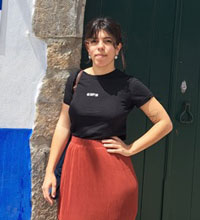
Lucía Martínez Domínguez, MA
Madrid, Spain
Email Lucía Martínez Domínguez
Victor Donas, Chile
Valencia, the old city, opened its gates gracefully to receive the relational flow on its streets. A city sculpted from centuries of history, where time seems to bend into multiple layers that go from the vestiges of the Roman Empire, through the grandiosity of the Spanish kingdom where once the sun never set, up to the present where Spain has opened into the challenges of European modernity.
It is difficult to think of a better place, full of endless corners, to receive our relational community in this so-longed expression of thirdness, the gathering, as in Plato’s Symposium (El Banquete in Spanish: The Banquet). To put a face to the written words, to have a body instead of a moving sonic image on the screen. To once again share each other’s psychoanalytical work grounded in the resonances of relationality. To share around deep banalities, as Scandinavian artist Asger Jorn demonstrates in his voluptuous expressionism, exhibited in Valencia’s Institut de Arte Moderno.
But as in Plato’s Symposium, we also had to see (at least those who are willing to) otherness as an injured field. From the little spaces of our consultation rooms and mental health services, to the big scenario of the social and political, we have to deal with this wave of destructive, de-humanizing narcissism, infiltrating almost every corner of our experience. The migration crisis, where fellow humans are forced to escape the brutality of their homelands, just to find shutting doors, moved by privileged countries’ nationalism and their pitiful excuse of not having enough resources, while they still make their income from less privileged countries. The beast of war in Ukraine. The never-ending violence in Israel-Palestine; the unconceivable violence against women in Afghanistan and Iran. The obscene return of fascism, its leaders and its archaic forms of subjectivation all around the world. The frightening and uncertain development of power from the asymptotic rise of forms of technology, which can be used to execute the coercive control over human population. The suicidal voracity of the neoliberal socio-economic system, which not only transforms people into productive pieces of machinery, but is also now exhausting what keeps us alive, the alive environment, in the most unprecedented climate crisis of all human history since the last Ice Age, provoked by our greedy societies.
When we speak of human survival as such, in its material and psychic forms; when we talk of human ways of subjectivation; when we engage with the dimension of human suffering, we are inevitably in the domain of psychoanalysis and particularly in the mandatory ethics of relationality. We have no longer the time to claim ourselves a scientific society and become bystanders. We are living with unprecedented power. To deal with it is part of our job, from New York to Abu Dhabi.
What Valencia perhaps has shown us is that there is an urge to think of ourselves again as an international institution that holds human relationality at the core of its manifesto. IARPP as a community is sharing the same urges that every human group and individuals are facing. Otherness, the enigmatic and always compelling desire and anguish of the other, otherness that collapses under the repetition of the old diagrams of power. What was in the outside is now at the gates of IARPP. Valencia showed us the deep bonding space IARPP is, but maybe it also showed us the complexity of the struggles we are on and have ahead of us. Valencia, the old city, as witness. And as difficult and challenging this move outside our pre-formed construction is, we must have faith we are searching, estamos en la búsqueda. Against a new power, a new kind of beauty still to be found.
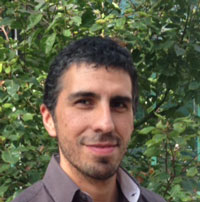
Victor Donas, MD
Santiago, Chile
Email Victor Donas
Tatiana Kobzeva, Russia
First of all, I would like to say that the relational community and the spirit at the conference seemed to me more open, friendly and humanly pleasant than happens at conferences on classical psychoanalysis. I was pleasantly struck by the variety of theoretical and practical aspects that cross with other therapeutic and analytical approaches, which the speakers creatively integrated in their work, staying committed to the relational paradigm.
I was deeply touched by the sense of connectedness and belonging described by Greek and Israeli colleagues, whose work I hope to get further acquainted with. One with her client, the other with his analyst, each presented such deep, courageous and touching experiences, showing amazing desire and ability to stay connected with their patients in the most difficult moments of therapy, with creative and very relational approaches to challenges. I think it is the relational paradigm – with its ability to be open, demonstrate vulnerability, and focus precisely on creating a common emotional and mental platform, not just on analyzing unconscious fantasies – that helps to create such a flexible and reliable connection. And the presentations of colleagues from Spain and Italy, Luis Guerra and Carmine Schettini, were as unforgettably poetic as if they were works of art. It was also very interesting and useful to listen to plenaries on intersectionality and gender: these are very fresh and new topics for Russian analytical discourse, and we have something to think about and learn here.
I would like to return to many topics and, if possible, to re-read the papers more thoughtfully. If I understand right, we do not have access to the original materials of the conference. From an organizational point of view, it would help me a lot if IARPP would share the conference papers and presentations in electronic form, as Tony Bass admirably did.
A very inspiring experience, definitely.
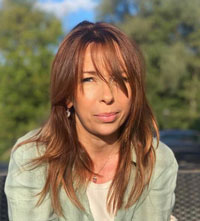
Tatiana Kobzeva, MA
Moscow, Russia
Email Tatiana Kobzeva
Sean Meggeson, Canada
For me there was an unthematized presence of “song” this year at the IARPP conference. Not only in several of the paper presentations was song instrumental conceptually but also, literally, there were lively songs being played loudly, particularly before plenaries in the large conference room.
Before one plenary, I couldn’t help a side-smile as a low-key cover of Dolly Parton’s “I Will Always Love You” was pumped into the room. Was this a promise being (un)consciously offered to us by the organizers of the conference?
And I hope life will treat you kind
And I hope that you have all
That you ever dreamed of
Oh I do wish you joy
And I wish you happiness…
Well, it’s a nice tune.
Song, in both theoretical and clinical ways, was addressed more directly in papers by Matt Aibel (USA), Ilene Philipson (USA), and Alessio Vincenti (Italy), all of whom took up the notion of Stephen Sondheim as America’s “relational psychoanalyst” whose musical playhouse has come to hold a space for relational therapeutic action in a world where psychotic violence, dislocation and fragmentation more than ever feel inescapable and impossible to face. Which was a topic addressed by Ronnie Carmeli (Israel) in her insightful paper on analyst/patient psychotic processes, “This Chaos is Killing Me,” where she explores Bionian and Winnicottian concepts of psychosis through the “music therapy” of David Bowie, who seemed to overcome mental illness through a lifetime process of artistic creation and relentless self-reflection.
Another instance of song at the conference was Spyros Orfanos’s (USA) reference to the Bob Dylan song “Times Have Changed.” Orfanos described the song as “beautiful,” which struck me in that to my ears the song stands as a powerful, unblinking testament to the manic breakdown of any relational reality in a post-desire horizon of existence.
People are crazy and times are strange
I’m locked in tight, I’m out of range
I used to care, but things have changed
I’ve been walking forty miles of bad road
If the bible is right, the world will explode
I’ve been trying to get as far away from myself as I can
What’s also interesting about Orfanos’s reference to this bleak song is that it was made in the context of his courageous, “impossible” relational work with Afghans whom the American government betrayed upon the closure of Operation Enduring Freedom. For me, one of the most memorable take-aways from the conference was Orfanos’s general belief in relational work as a global mental health initiative in the face of unspeakable moral injury.
In this sense, if beauty is truth, then Orfanos’s descriptor makes sense. Unlike Dylan’s manic resignation from caring, it inspires clinicians to stay in range despite overwhelm and chaos—and, in fact, to work very deeply indeed.
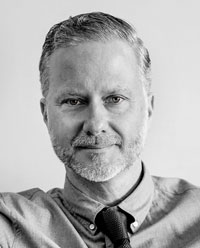
Sean Meggeson, M.A., R.P.
Toronto, Canada
Email Sean Meggeson
Indira Moodley, South Africa
Thank you for the opportunity to offer a reflection on the recent conference in Valencia, “Meeting the Other.” A friend once said to me that happiness lies not in the event or the day itself but rather in its anticipation, that heady mix of phantasy and desire without reality propping up its cautious tentacles. Infused with excitement, hope bypasses dread, and the promise of specialness beckons.
Reality is different. It is disappointing and imperfect but it is real, and it is in the indeterminate space between imperfection and desire that we negotiate life. For me as a woman from South Africa, deeply embedded in a racial past (I grew up in apartheid South Africa), the theme of the conference became a personal invitation to bring along my experience/understanding of otherness.
I had been intensely busy leading up to my time to the conference, and even on the train to Valencia from Madrid I sat sandwiched between my family and opposite a stranger, trying to edit my paper so that it would be more reachable and not just an academic text. I couldn’t think of what lay ahead or what happiness could look like.
The conference was a bit of a milestone (my first international) experience for me: interesting, enlivening and challenging. It was wonderful to be among so many from so many places. People were warm and interested, and so engendered curiosity and openness. I felt comfortable talking about the things that concern me and hearing from others about their work, their lives. It was a conference that covered so many significant and painful geopolitical crises that we currently live through, and it was heartening to see the reaches that are made into heartlands of suffering both personally and socially. There was a great mix of papers with a wide range of appeal.
To meet the other is also, perhaps, to meet the other in oneself, that which we deny in ourselves. Kohut talks of that shadow or disavowed part of oneself. Did the conference unwittingly omit the other through negation of physical embodied presence? Was it a leap not to be made in the concern that wounding could take place? I think we have to go to the difficulties, the unspeakable traumas that so permeate the present, in an effort to acknowledge and make reparation. In theory the other was alive in the academic and psychological engagement presented though. The niggling feeling I had was that I felt like I was in the minority in terms of representation. Yet the right thing was being done: we were talking about issues pertaining to the marginalised. I know I now inhabit that in-between space; I have transcended barriers, but the unease persists. This conference, which brought happiness to me, revived another tension, just as it earnestly sought to address so many of our current challenges. I felt like I came from such a faraway land that our concerns were not on the agenda. I know that is not true. But as a psychologist who keeps going back to the psychoanalytic theory, I need to know that it can rise to meet the challenge of a world that has positioned people through dominance and conquest. Today, like in the past, we continue to grapple with that history expressed through migration and ongoing tension regarding race and privilege, all in the context of climate challenges. History lives through us, and so a conference and a theory focusing on the relational has to invite/draw on these intersecting tensions among us in our positionality and privilege, allowing us to possibly stretch our reach and acknowledge our complicity.
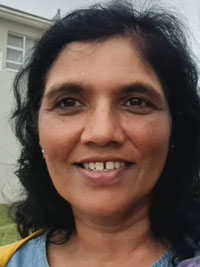
Indira Moodley, MA
Cape Town, South Africa
Email Indira Moodley
Joanna Oleson, USA
It was like a dream, returning to Spain where I had lived more that 50 years ago in a small fishing village on the southern coast. Yes, it was during the last few years of the Franco regime. I have been back a few times, but not in 9 years. I’ve long had a fantasy of living in Spain again, but never worked out all the details of having a practice, the legalities, logistics, etc.
But this trip felt special, combining my beloved IARPP and España. I have always felt more “at home” in Europe, especially in Spain because to me it is more relational. I feel more connected in Spain; connected to the people, the past, the earth, the sea, the food, everything.
I was impressed to learn that Valencia was the last stronghold against Franco’s forces in the horrific civil war. I decided to stay in the old town so I could walk, talk, and be among the people of Valencia in their plazas, streets, and cafes. It allowed me to explore and interact with everyday Valencia.
From the taxi drivers and others I spoke to, I learned that there were many foreigners living in Valencia. I was impressed at the acceptance of the “others” into the city, while it still seemed to maintain its core identity and values. Later I learned there was a discussion in one of the small groups at the conference about the rise in popularity of the right wing party and the recent vote that shifted the government of Valencia to the right. What was going on?
Perhaps my excitement at being in Spain interfered with my fully taking in the conference, at least in a more planned and thoughtful way. If I had gone to the panel “Good and Evil, Love and Hate,” with Laura Molet Estaper (Spain), or Laura Tormo Marinez’s (Spain) presentation on the “Social Political Overview” panel, or to the panel “Cultural Trauma,” maybe I would have had some answers to my questions about the political climate. I hope their papers will be published soon.
One very creative plenary panelist was Luis Raimundo Guerra (Spain) speaking on “Don Quixote’s Windmills: Millennials’ Struggle to Hold Hope in the Face of So Much Uncertainty and Crises.” It was very impressive as Raimundo created a dialogue and his young translator took the microphone to speak the imagined responses of a Millennial. This gave a hint of the strengths as well as the tensions and conflicts faced by the new generation.
Back in New York, as I reflect on the conference, it occurs to me that I must have missed any mention of the impact of the Spanish Civil War. When I was in Spain in the 1970s, the memories of the Spanish Civil War were so horrific that no one wanted to talk about it. We were met with cold silence when we asked. Is that still the case?
Laura Molet has previously presented on Silence. Is silence playing a role in repressing, dissociating, or denying the impact of the Spanish Civil War? The transition on a governmental level may have initially been fairly smooth, but what is happening now? And what about personal/family trauma? What do Spanish therapists hear in the consulting rooms?
I am curious to hear from anyone who did speak, has written, or has thoughts about the impact of the Spanish Civil War on culture and on the political situation in Spain.
Thanks to all for a wonderful conference and experience, and to Matt for inviting me to write here.
Hasta Pronto y Abrazos,
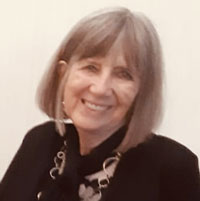
Joanna Oleson, Psy.D.
New York, NY, USA
Email Joanna Oleson
Spyros D. Orfanos, USA
It happened pretty quickly despite my worry. I had arrived at the conference hotel two days prior to the start for a variety of reasons mostly due to convenience. I was concerned because I had not been to an IARPP conference since 2018 and felt out of practice. My worry disappeared when two friends Hazel Ipp and Margaret Mitchell walked out of the main elevator into the lobby of the Sercotel Sorolla Palace Hotel. We started looking for a good tapas restaurant in the neighborhood. While not quite like the scenes in Luis Buñuel’s 1972 surreal film The Discreet Charm of the Bourgeoisie, it took a while for us to find a place. But we did and our appetites were deliciously rewarded.
My experience of the 2023 IARPP Valencia conference was not unlike my past experiences with IARPP conferences as far back as the first in 2002, a gathering which was radical then and remains radical today. Relationality is a value – the person in relation to the other still matters, and this was the theme of IARPP in Valencia. I experienced many powerful versions of this theme from the clinical to the theoretical to the sociopolitical. While I belong to many tribes – academic, clinical, ethnic, and professional, there is something uniquely home to me about IARPP. Moving through the hotel hallways and running into old friends and creating new friendships was heartening. Watching conference chairs Raimundo Guerra, Silvia Jiménez, and Sandra Toribio Caballero welcome, direct, and enthuse the registrants was a study in the practice of conference art. A particular pleasure was attending the innovate panels and plenaries, all struggling with cutting-edge issues in and outside the consulting room, proving the value of this IARPP conference. Lastly, there was the unforgettable crossing of the great avenues of Valencia after dark while arguing with colleagues about where to find the best white anchovies. It was a death-defying thrill.
For many of us, the last few years have been dangerous, isolating, demoralizing, and bewildering. Participating in the IARPP Valencia conference reminded me of the vitality and power of the human encounter. Something I’ve always known but sometimes I forget. It’s good to be reminded of things one can forget. Valencia IARPP 2023 helped me remember the radical then and the radical now. Gracias and gràcies!
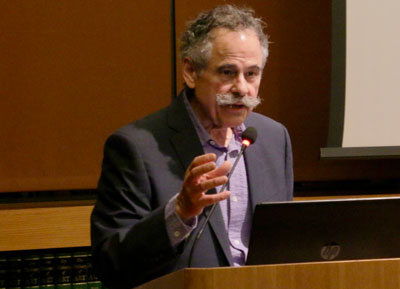
Spyros D. Orfanos, Ph.D.
New York, NY, USA
Emaill Spyros Orfanos
Alejandra Plaza, Mexico
(haga clic aqui para español)
Meeting again at the Conference in Valencia was a nurturing experience that enriched us with reflections on theoretical and clinical issues. The encounter with the other was possible from different perspectives. The possibility of presenting and listening from diverse points of view was evident. The deepening of the themes and the subtle analysis of them were carried out in the moments of dialogue after the panels and plenary sessions.
There was a great diversity of readings on gender issues, abuse of the other, colonialism, and fear in our current world, in an extremely complex fabric. The possibility of acting in the clinic was raised in parallel. We could talk about our vulnerabilities and strengths as tools. We therapists are capable of dreaming … disillusioning ourselves … being Don Quixotes guided by our ideals, our history, our own experiences which arm us to go forward accompanying our patients.
Meeting friends and colleagues, having interlocutors who listen and embrace us with the experience of accompaniment in the emotional commitment that our therapeutic work implies, fills me with satisfaction.
There was a very important advance in equity, having simultaneous translation of the plenaries as a consideration for those who do not speak English as their mother tongue. The same thing happened in various panels in which paper translations were available. Likewise, there was a discussion group in Spanish, which allowed us to open the spectrum of multiple languages … and diversity.
We face a great challenge for the next Conference in Mexico, in Merida, Yucatan, in which we hope to have spaces that are open to cultural, multilingual, and growth experiences.
We look forward to seeing you in 2024!
I send you all a big hug.
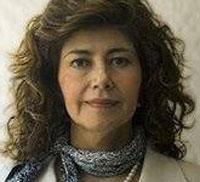
Alejandra Plaza, Ph.D.
Mexico City, Mexico
Email Alejandra Plaza
Alejandra Plaza, México
Reunirnos nuevamente en la Conferencia en Valencia fue una nutritiva experiencia, nos enriqueció en reflexiones sobre temas teóricos y clínicos. El encuentro con el otro fue posible, desde diferentes perspectivas. La posibilidad de exponer y escuchar puntos de vista diversos fue evidente. La profundización de los temas y el sutil análisis de los mismos, se llevó a cabo en los momentos de diálogo después de los paneles y plenarias.
Hubo una gran diversidad de lecturas sobre temas de género, abuso al otro, colonialismo, miedo en nuestro mundo actual, en un tejido sumamente complejo.
Se planteó de manera paralela la posibilidad de actuar en la clínica, se destacó nuestras vulnerabilidades y fortalezas. Los terapeutas somos capaces de soñar … desilusionarnos … ser un Don Quijote con la guía de nuestros ideales, nuestra historia, nuestras propias vivencias que nos arman para seguir adelante acompañando a nuestros pacientes.
Me llena de satisfacción el encuentro con los amigos y colegas con los que nos podemos volver a reunir para tener interlocutores que escuchan y nos abrazan con la experiencia del acompañamiento en el compromiso emocional que implica nuestro trabajo terapéutico.
Por otro lado, hubo un avance muy importante en equidad al tener traducción simultánea. Es una consideración a quien no habla inglés como lengua materna. Lo mismo sucedió en diversos paneles en los que se contó con los trabajos impresos traducidos. Así mismo, hubo un grupo de discusión en Español, lo que nos va permitiendo abrir el espectro de lo multilingüe … de la diversidad.
Nos enfrentamos con un gran reto para la próxima Conferencia en Mexico en Merida Yucatan, en la que esperamos contar con espacios de mayor apertura a las vivencias culturales, multilingües, de crecimiento.
Los esperamos con gran gusto en el 2024!!
Te mando un fuerte abrazo!

Alejandra Plaza, Ph.D.
Ciudad de Mexico, Mexico
EmailAlejandra Plaza

